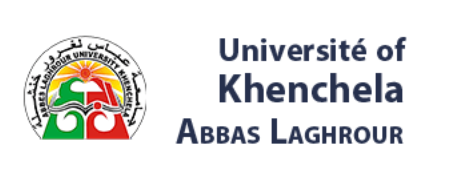
America between dreams and identity. Depictions of the American Dream in literature, cinema and popular culture: prospects, hopes and failures (Abbes Laghrour University of Khenchela)
This conference will explore the American Dream and will assess its fulfillment and its validity in contemporary America. We will also examine the numerous works of literature, cinema and popular music that depict the achievement of the dream and the disillusionment of unfulfilling it.
The origin of the American Dream can be traced way back to the Declaration of Independence in 1776 which promised that citizens of the new nation were already endowed by their Creator with certain undisputable rights, including life and liberty, and that these same people were entitled to engage in many varied pursuits of happiness. These pursuits of happiness often ended with many finding some degree of fulfillment.
In 1931, James Truslow Adams came up with the phrase “American Dream” in his book The Epic of America and defined it as the “dream of a land in which life should be better and richer and fuller for everyone, with opportunity for each according to ability or achievement.” (404) Adams’s book was published in the midst of the Great Depression in order to give Americans a sense of hope and confidence after their lives were ruined by the biggest economic crisis of the twentieth century.
The conference aims at providing an opportunity for scholars and university professors to share their knowledge and expertise about the American Dream, its fulfillment and its depictions in literature, cinema and popular culture. The questions that will be discussed in the conference include the following:
- What is meant by the American Dream?
- How do people all over the world perceive the American Dream?
- What do we make of the thousands of Algerians who apply for the green card in order to achieve the dream?
- What about minority groups in the USA and the people who live at the bottom of the economic ladder?
- Has Martin Luther King’s dream of racial equality and harmony been fulfilled?
- Are Americans still optimistic about the United States and its promises?
- Is the dream still valid in the USA of the twenty-first century?
Like so many potent social myths, the American Dream is barren of clear meanings, whether in journalistic accounts or in academic analyses. The major American literary writers who have engaged the dream were Ralph Waldo Emerson, Walt Whitman, Henry David Thoreau, Mark Twain, Henry James, Willa Cather, Robert Frost, Wallace Stevens, Ernest Hemingway, and Scott Fitzgerald, to name but a few.
Scott Fitzgerald’s novel, The Great Gatsby (1925), deals with the decline of the American Dream during the Roaring Twenties. Similarly, Willy Loman, protagonist of Arthur Miller’s play Death of the Salesman, tells his young sons “That’s the wonder; the wonder of this country… a man can end with diamonds here on the basis of being liked!” (79 act 2). He mistakes the image of popularity for the reality, ignoring, for example, the obvious fact that, for some rich men, being “well liked” is not the source of their wealth but its effect.
The American Dream is also represented in many works of cinema. Orson Welles’s Citizen Kane (1941) tells the story of Charles Foster Kane, a poor child who becomes a wealthy newspaper publisher in New York City. He is an archetype of the self-made man who fulfills the dream. Also, Dennis Hopper’s 1969 counterculture movie Easy Rider is less optimistic about the American Dream. In the last conversation between the two protagonists, Billy (Dennis Hopper) says: “we’ve done it, we’re rich!” to which Wyatt (Peter Fonda) replies: “we blew it”. Wyatt’s comment suggests that the American Dream is not just about achieving financial success; it is also about achieving individual freedom.
Several songs praise America as a land of opportunities in which everything is possible. Irving Berlin’s “God Bless America” is an anthem that was popularized by singer Kate Smith in 1938. Similarly, folk singer Woody Guthrie wrote “This Land is Your Land” in 1940 to celebrate the beauty and grandeur of America. The song was covered by several artists including Pete Seeger, Bob Dylan, and Ani DiFranco.
Today, the examination of the American Dream should be linked to the global pandemic of COVID-19 that killed millions of people and brought the economies of the world to a standstill. To what extent it is possible for an American or an immigrant to fulfill the dream in today’s America? Should America sustain the world with a new vision of hope and opportunity to reclaim the American Dream? Is not the comment of stand-up comedian George Carlin pertinent when he states: “The reason they call it the American Dream is because you have to be asleep to believe it”? These are some of the questions we will be addressing in this conference.
Conference Chair
Dr. Khaled Chouana (Khenchela University)
Scientific Committee Chair
Dr. Walid Kefali (Khenchela University)
The Scientific / Reading Committee
Pr. Jamel Goui (Ouargla University)
Dr. Ahmed Chaouki Houadjli (Biskra University)
Dr. Salim Kerboua (Biskra University)
Dr. Mokhtar Hamadouch (Oum El Bouaghi University)
Dr. Hicham Souhali (Batna 2 University)
Dr. Farida Lebaal (Batna 2 University)
Dr. Salim Ounis (Khenchela University)
Dr. Sabrina Baghzou (Khenchela University)
Dr. Khaled Chouana (Khenchela University)
Dr. Fayçal Saoudi (Khenchela University)
Dr. Amel Boumaaraf (Khenchela University)
Organizing Committee
Chair: Mr. Abdelmounaim Khanfri (Khenchela University)
Ms. Rachida Chichoune (Khenchela University)
Mr. Hichem Fellah (Khenchela University)
Ms. Nabila Yousfi (Khenchela University)
Ms. Fahima Dakhouch (Khenchela University)
Mr. Issam Boulagroune (Khenchela University)
Important Dates
* April 30, 2022: Deadline for the receipt of abstracts
* May 02, 2022: Notification of acceptance
* May 17, 2022: Full paper submission deadline
* June 08 & 09, 2022: Conference date
Guidelines for Submission
The proposals are to be sent to the conference email address: american.dream.conf.2022@gmail.com
Submissions will be evaluated by a peer-review committee. The conference language is English.